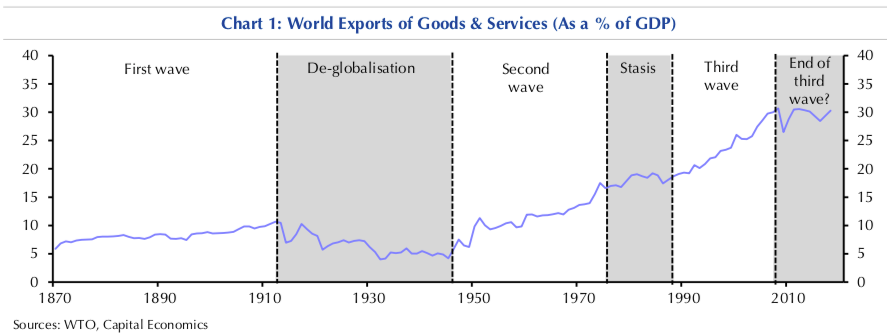The Third Wave Of Globalization Has Ended
The global economy is certainly at crossroads. Protectionism and nationalism, a well-matched marriage of global chaos at the moment, has threatened to end the third wave of globalization that began in the late 1980s.
Capital Economics has published a compelling research note, titled “The end of globalization,” specifying how 150 years of globalization could’ve put in a significant peak in the last several years, all thanks to President Trump’s trade war with China.
The third wave of globalization began in the late 1980s, mostly driven by technological advancements and shifting labor and capital around the world to the most cost-effective regions.
While the Western hemisphere consumed for three decades, the Eastern hemisphere manufactured the goods (which produced rising inequality in the West and thus how protectionism and nationalism were sparked), but the status quo of how supply chains are organized around the world could be changing as world trade volumes have hit a significant wall.
U.S. Economy Grew at 1.9% Pace in Third-Quarter

In terms of the Elliott wave principle, a third wave eventually gives out to a corrective fourth wave. Capital Economics believes the world is headed towards a period of de-globalization, or as history will call it a fourth corrective wave.
“It is possible that this is just a temporary hiatus and that an unforeseen technological breakthrough will trigger a new wave of globalisation. But such waves are rare. In fact, there are several reasons – even before we consider the trade war – why globalisation has peaked. First, all the major steps to integrate the global system have been taken. Second, advanced manufacturing techniques mean that the location of manufacturing no longer hinges on where labour costs are cheapest. Third, complex supply chains have reached their limit. Fourth, China is unlikely to open up its capital markets significantly.
…click on the above link to read the rest of the article…